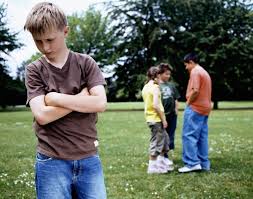Blog
Suicide and Kids

There is a perception that younger children do not kill themselves. We know that sometimes teenagers do but 10-14 olds or even 5-11 year olds? Deaths in this age group are uncommon to begin with and historically have associated with traffic accidents.
Several studies released in 2014 reported that the suicide rate between 2007 and 2014 for 10-14 year olds equalled the traffic accident death rates. There were 425 suicides in 2014 and 384 car accident deaths in the same year. This was a doubling of the suicide rate in a seven year period of time. More boys than girls committed suicide but the increase in female suicide was much higher in that it tripled. Rates of self harm e.g. cutting tripled in 10-14 year olds. These types of behaviors often precede suicidal behavior.
These numbers overall seem small but in an age group that is showing an increase in deaths by suicide, what is happening and what can we do as families? We are often afraid to discuss and acknowledge mental health issues especially in children. David Jobes, Ph.D. and Director of the Suicide Prevention Lab @ Catholic University in Washington, D.C. debunks the following myths about child suicide.
Myth 1: Asking someone about suicide will cause him to become suicidal.
This is not true. Usually asking kids about suicide will often help them open up and talk about their feelings.
Myth 2: Depression causes all suicides.
Of the 100+ Americans (adults), 50% have depression. Other mental illnesses and substance abuse play a role as well.
In children ages 5-11 years of age who committed suicide, about 66% had some form of attention deficit (ADD) and 33% depression
In children ages 10-14 years of age who committed suicide, about 60% had depression and 30% had ADD/ADHD
In younger children, the impulsivity associated with ADHD may contribute to this higher percentage association
Myth 3: We cannot prevent suicide
Kids in particular will let their friends know, drop hints, write essays or tell coaches or teachers.
Kids will not tell their parents or let on this might be going on in their minds
Myth 4: Suicide is impulsive
Kids telling other kids is critical for prevention; discuss with your children what to do if their friend(s) say something about suicide
Myth 5: Young children ages 5-11 years old cannot be suicidal
Children in this age group can take their lives by running into traffic and getting hit by a car
Research in this age group is still evolving on what the real mental health risks are
Myth 6: After a suicide occurs, having a school assembly seems like a good idea
Conversations are actually best had in small groups v. a larger assembly setting
Children do model peer behavior
Modeling can occur after large events such as hearing about suicide from an expert
A lot of suicide research has been done at Nationwide Children's Hospital in Columbus, Ohio. Our WholeKids doctors and nurse practitioners have been attending behavioral health seminars there for the past year since we are located in Columbus, Ohio. Implementing suicide screening in primary care pediatric offices is highly recommended. As of January 2018, we will be screening all children older than 10 years old at their wellness exams. There is a very simple questionnaire that will be given to the child to fill out privately without the parent(s) in the room. The questionnaire will be reviewed by the practitioner and concerns will be discussed. This type of routine screening has been shown to have a positive impact on identifying mental suicidal behaviors and thoughts.
Many resources are available at The American Foundation for Suicide Prevention.
We can prevent suicide.
Care of mental and emotional health is just as important as physical health! Join the workshop at Whole Yoga & Wellness on Saturday, February 10th from 10:30-11:30am for a discussion about nutrition and yoga as it pertains to emotional health - Nutrition & Yoga for Emotional Health: Focus on ADD and Mood Disorders. Children 12y or younger may attend but need to be registered separately for $15 v. the adult rate. To learn more and register, go to www.wholekidspediatrics.com/yoga-and-wellness. You can get a 25% discount to use on this workshop or any other class/workshop by entering your email. You will also then get to download a fabulous home remedy resource, The Wholistic Medicine Cabinet.
